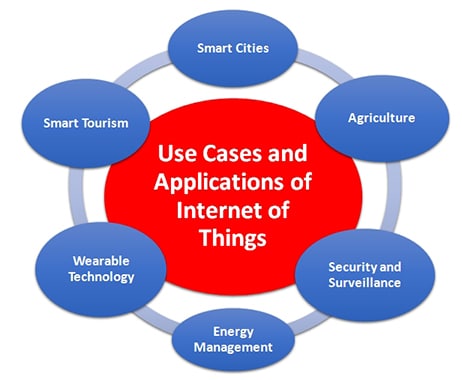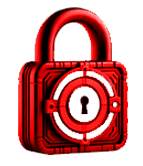Working with IoT protocols like MQTT, AMQP, and CoAP on cloud platforms is essential for developing scalable and efficient IoT applications. The choice of the programming platform will depend on factors like project requirements, existing skills, and target devices. Leveraging the appropriate libraries and cloud services can enable seamless integration of IoT devices with cloud-based applications.
The Internet of Things (IoT) has ushered in a technological revolution, transforming the way we interact with the world around us. Its applications are vast and diverse, spanning numerous industries and sectors.
One of the most prevalent and impactful use cases of IoT can be found in smart home automation. IoT devices like smart thermostats, lighting systems, security cameras, and appliances enable homeowners to control and monitor their homes remotely, enhancing convenience, energy efficiency, and security. Some major IoT use cases have been catalogued in the table below.
Table of Contents
Industrial IoT (IIoT) is pivotal in the industrial sector, optimising operations through predictive maintenance, asset tracking, quality control, and supply chain management. This leads to reduced downtime, improved productivity, and data-driven decision-making, enhancing competitiveness.
In healthcare, IoT aids remote patient monitoring and wearable health devices, resulting in better health outcomes and reduced costs. Transportation and logistics benefit from IoT through vehicle tracking, fleet management, and traffic optimisation, boosting safety and efficiency.
There is a range of applications in other domains too.
Agriculture: Embraces IoT for precision farming, improving crop yields and sustainability
Smart Cities: Leverage IoT for traffic management, waste optimisation, and environmental monitoring, making urban areas more efficient and sustainable
Retail: Uses IoT for inventory management and personalised shopping experiences
Energy Management: This is enhanced by IoT, with smart grids and energy consumption monitoring promoting sustainability
Environmental Monitoring: IoT sensors aid in tracking wildlife, water quality, and pollution levels, contributing to conservation efforts
Smart Buildings: Utilise IoT for energy optimisation and security
Supply Chain Management: Relies on real-time tracking and inventory optimisation
Security and Surveillance: IoT enhances security and surveillance with advanced camera and sensor technologies
IoT also plays a crucial role in water management, tourism, education, wearables, and sports and entertainment, offering a wide range of benefits across these domains.
IoT Use Cases

Table 1: Prominent and notable IoT use cases
| Smart Home Automation Smart thermostats, Smart lighting systems, Home security systems, Smart appliances | Security and Surveillance Smart cameras and video analytics, Intrusion detection systems, Fire and smoke detection, and Access control systems |
| Healthcare Remote patient monitoring, Wearable health devices, Medication adherence monitoring, Smart prosthetics | Transportation and Logistics Vehicle tracking and fleet management, Traffic management and optimisation, Predictive maintenance for vehicles, Autonomous vehicles |
| Agriculture Precision agriculture, Livestock monitoring, Soil and environmental monitoring, Automated irrigation systems | Smart Cities Smart traffic management, Waste management optimisation, Environmental monitoring, Smart street lighting |
| Retail Inventory management and tracking, Customer behaviour analysis, Smart shelves and checkout systems, Personalised shopping experiences | Energy management Smart grid technology, Energy consumption monitoring, Demand response systems, Renewable energy integration |
| Environmental Monitoring Wildlife tracking and conservation, Water quality monitoring, Forest fire detection and prevention, Pollution control | Smart buildings Building automation and HVAC control, Energy-efficient lighting systems, Occupancy and space utilisation monitoring, Security and access control |
| Supply Chain Real-time tracking of goods in transit, Temperature and humidity monitoring for perishables, Inventory optimisation, Blockchain-based supply chain transparency | Security and Surveillance Smart cameras and video analytics, Intrusion detection systems, Fire and smoke detection, Access control systems |
| Health and Fitness Fitness wearablesSmart scales and blood pressure monitorsRemote health consultationsMedication dispensers | Health and Fitness Fitness wearables, Smart scales and blood pressure monitors, Remote health consultations, Medication dispensers |
| Water Management Leak detection and prevention, Water quality monitoring, Irrigation control, Flood prediction and response | Manufacturing Process automation and optimisation, Quality control and defect detection, Worker safety monitoring, Inventory tracking in real-time |
| Smart tourism Location-based services and recommendations, Smart transportation options, Tourist information kiosks, Cultural heritage preservation and monitoring | Education Smart classrooms and interactive learning, Student attendance monitoring, Campus security and access control, Asset tracking for educational institutions |
| Wearable Technology Smartwatches, Fitness trackers, Augmented reality (AR) glasses, Healthcare monitoring devices | Sports and Entertainment Sports performance analytics, Smart stadiums and fan engagement, Ticketing and access control, Equipment tracking and maintenance |
Key Protocols in IoT Implementations







